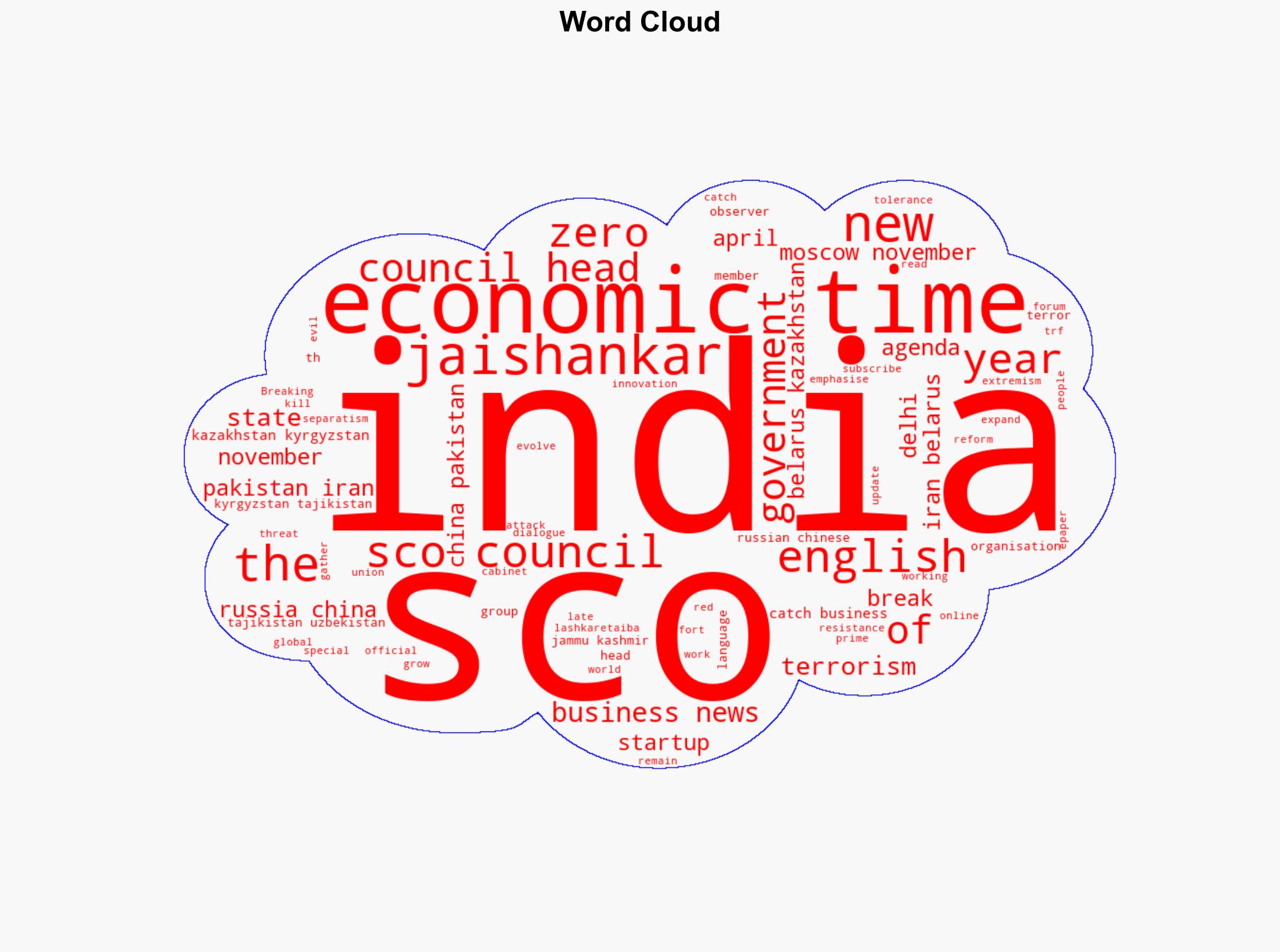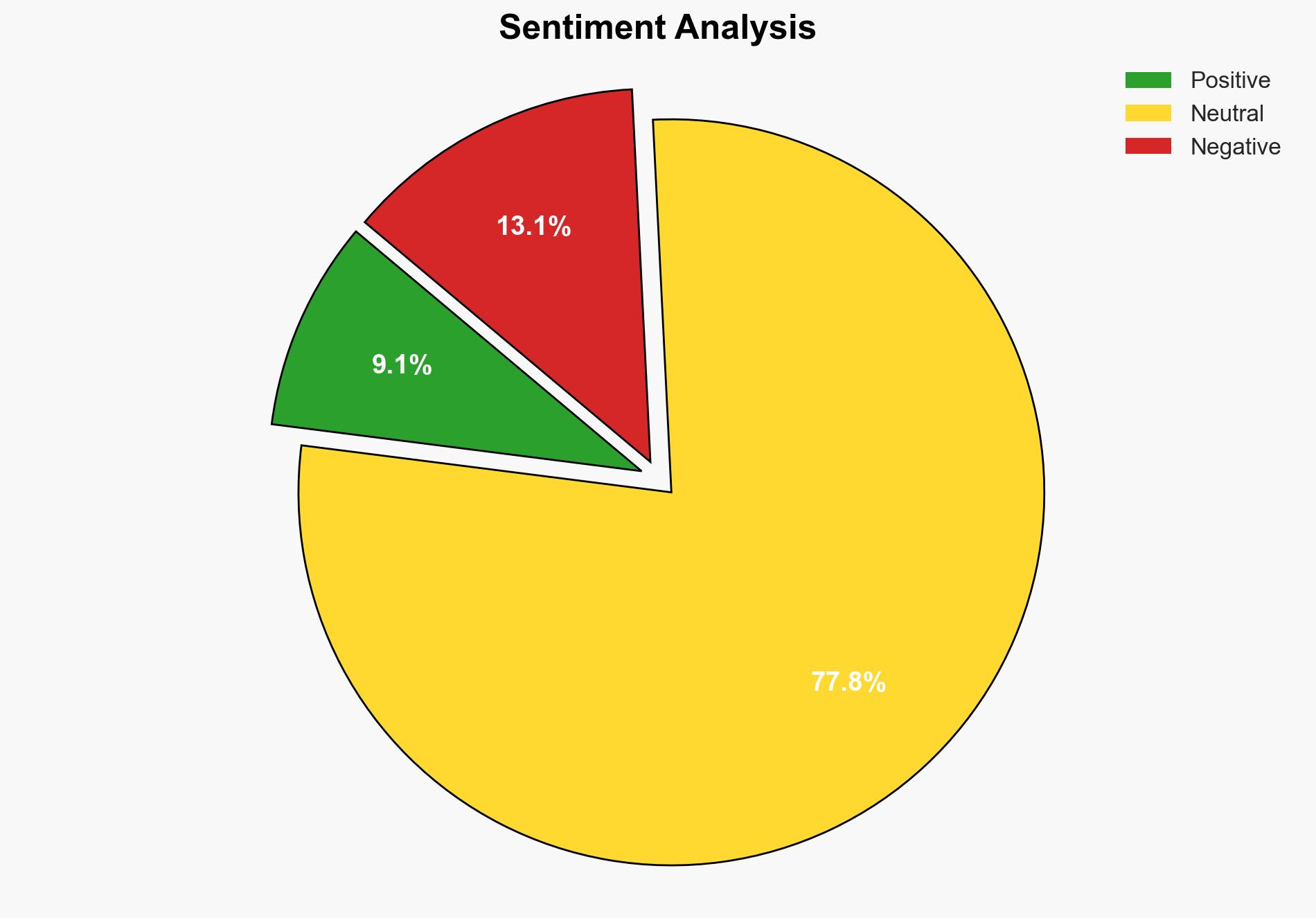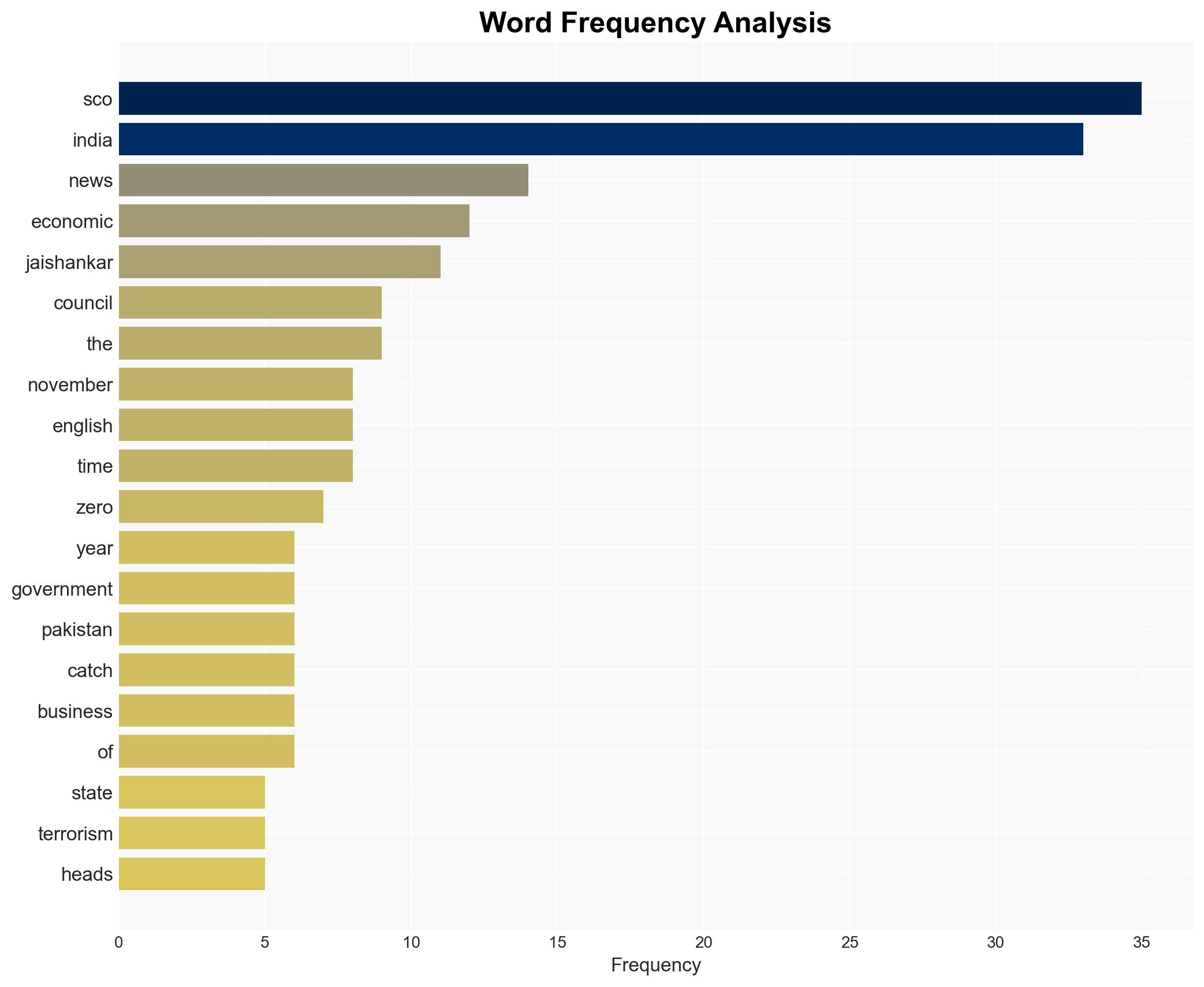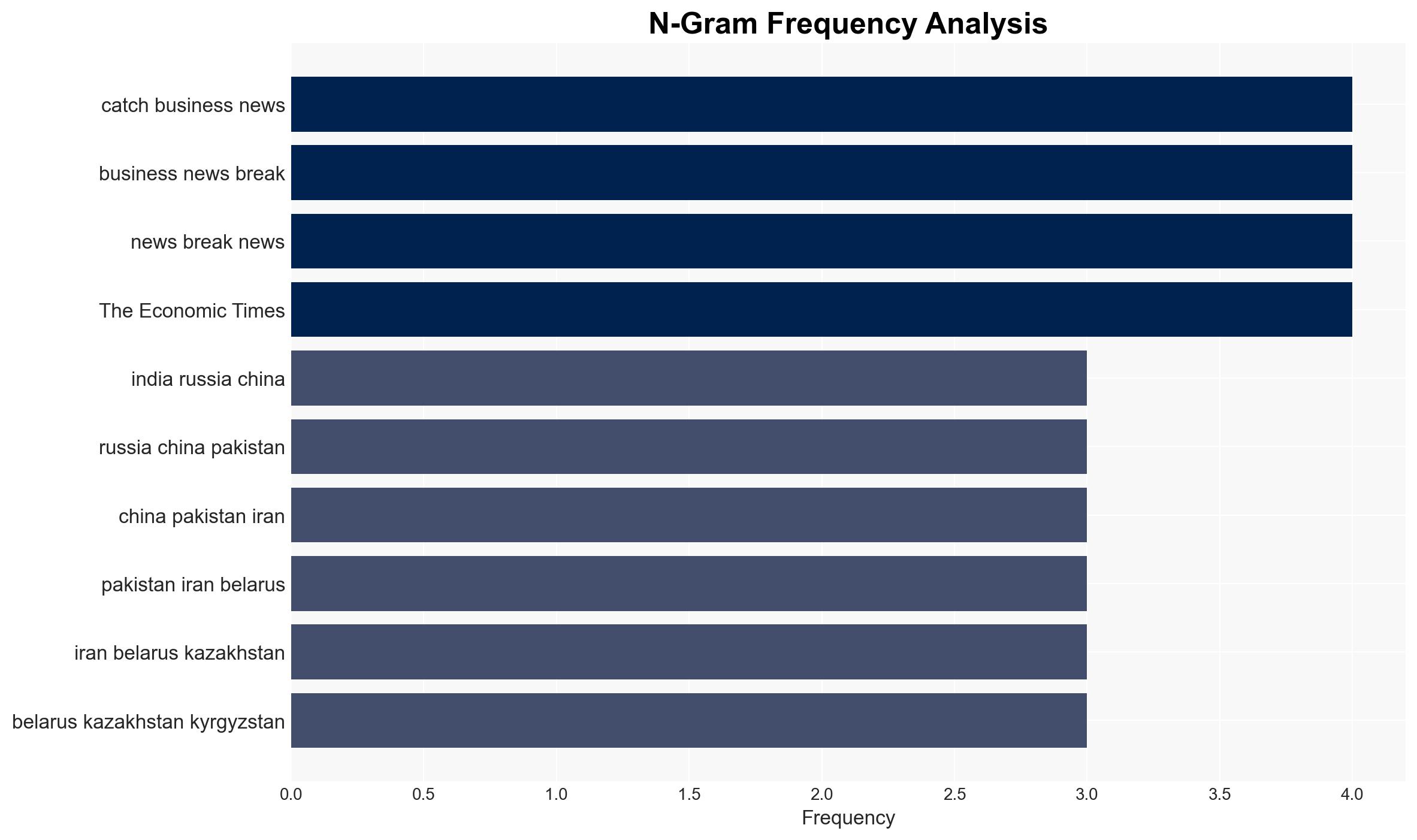Zero tolerance for terror Jaishankar reaffirms India’s right to defend at SCO meet – The Times of India
Published on: 2025-11-18
AI-powered OSINT brief from verified open sources. Automated NLP signal extraction with human verification. See our Methodology and Why WorldWideWatchers.
Intelligence Report:
1. BLUF (Bottom Line Up Front)
India’s reaffirmation of its right to defend against terrorism at the SCO meeting underscores its strategic intent to lead a unified global stance against terrorism, particularly in the context of recent attacks linked to Pakistan-backed groups. The most supported hypothesis is that India is leveraging the SCO platform to strengthen international cooperation against terrorism while advocating for organizational reforms. Confidence Level: Moderate.
2. Competing Hypotheses
Hypothesis 1: India is using the SCO platform to consolidate international support against terrorism, particularly targeting Pakistan-backed groups, to enhance its security and diplomatic standing.
Hypothesis 2: India’s emphasis on terrorism at the SCO is primarily a domestic political maneuver to bolster national security credentials and address internal security concerns.
Hypothesis 1 is more likely due to India’s consistent advocacy for global counter-terrorism efforts and its strategic interest in regional stability, which aligns with its broader foreign policy objectives.
3. Key Assumptions and Red Flags
Assumptions:
– India genuinely seeks international cooperation to combat terrorism.
– SCO member states are willing to prioritize counter-terrorism over other geopolitical interests.
Red Flags:
– Potential bias in attributing terrorism solely to Pakistan-backed groups without acknowledging other factors.
– Over-reliance on SCO’s ability to enforce counter-terrorism measures given its diverse membership.
4. Implications and Strategic Risks
The emphasis on counter-terrorism could lead to increased geopolitical tensions between India and Pakistan, potentially escalating into diplomatic or military confrontations. Additionally, if SCO reforms are not realized, India’s efforts may not yield the desired international cooperation, limiting the effectiveness of its counter-terrorism strategy.
5. Recommendations and Outlook
- Actionable Steps: India should continue to engage with SCO members to build consensus on counter-terrorism while also pursuing bilateral dialogues with key states to address specific concerns.
- Best Case Scenario: SCO adopts India’s proposed reforms, leading to enhanced regional cooperation and a reduction in terrorism-related incidents.
- Worst Case Scenario: Escalation of India-Pakistan tensions, resulting in regional instability and undermining SCO’s credibility.
- Most Likely Scenario: Incremental progress in SCO’s counter-terrorism agenda with limited immediate impact on ground realities.
6. Key Individuals and Entities
Subrahmanyam Jaishankar (India’s External Affairs Minister), The Resistance Front (TRF), Lashkar-e-Taiba (LeT), SCO Member States.
7. Thematic Tags
Regional Focus, Regional Focus: South Asia, Central Asia, Counter-terrorism, International Diplomacy
Structured Analytic Techniques Applied
- Causal Layered Analysis (CLA): Analyze events across surface happenings, systems, worldviews, and myths.
- Cross-Impact Simulation: Model ripple effects across neighboring states, conflicts, or economic dependencies.
- Scenario Generation: Explore divergent futures under varying assumptions to identify plausible paths.
Explore more:
Regional Focus Briefs ·
Daily Summary ·
Support us





